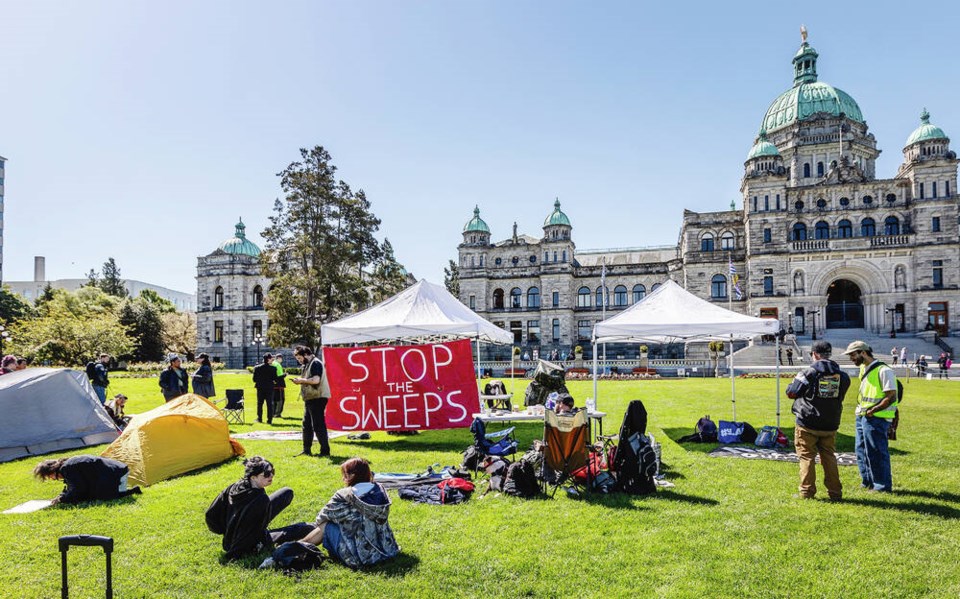A small group of people from Vancouver’s Crab Park encampment gathered on the legislature lawn on Wednesday to demand their input be included in government responses to homelessness.
Residents of the encampment travelled from the mainland hoping to have their voices heard by politicians at the legislature. A few people set up tents on the lawn.
“So many times, these politicians make decisions that affect people who are residents of Crab Park or unhoused people in all of the cities and places in this province, and they’re not listening to people,” said Fiona York.
“They’re not responding to our requests, so we decided to come to them.”
It’s a sentiment echoed by Greater Victoria group the Housing Justice Project, which released a report on Tuesday calling for the meaningful involvement of people affected by homelessness.
Often when someone with lived experience is included in work on homelessness, “there’s a kind of tokenism,” and the input doesn’t influence policy, said Bruce Livingstone, a peer organizer with the Housing Justice Project, who has been homeless several times.
The report’s other demands include an end to the displacement of people sheltering outdoors until there is enough housing available. Instead, the group wants municipalities to work with people in encampments to protect access to basic services, such as running water, electricity, bathrooms, sanitation and garbage disposal.
The Housing Justice Project says the region needs homes that rent for $500 to $1,000 per month in order to support people trying to get out of homelessness. The typical cost of a new rental of a one-bedroom apartment in Victoria is about $2,100, according to rental market trends website Zumper.
Rent subsidies or supplements can help to bridge the gap, but accessing the programs is often confusing and can take too long, the report says.
“Rent subsidies are not universally accessible to all who meet the program criteria,” the report says. “When the budget is spent, the program is closed. It’s like a game of musical chairs. If you don’t get a rent supplement before the music turns off, you stay homeless.”
The most recent count in Greater Victoria identified 1,665 people who were homeless, including those in shelters, couch-surfing and in public treatment and transitional programs.




